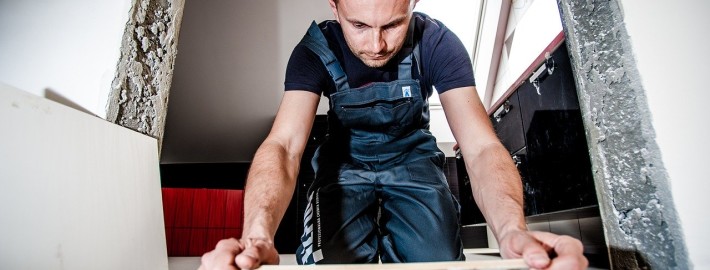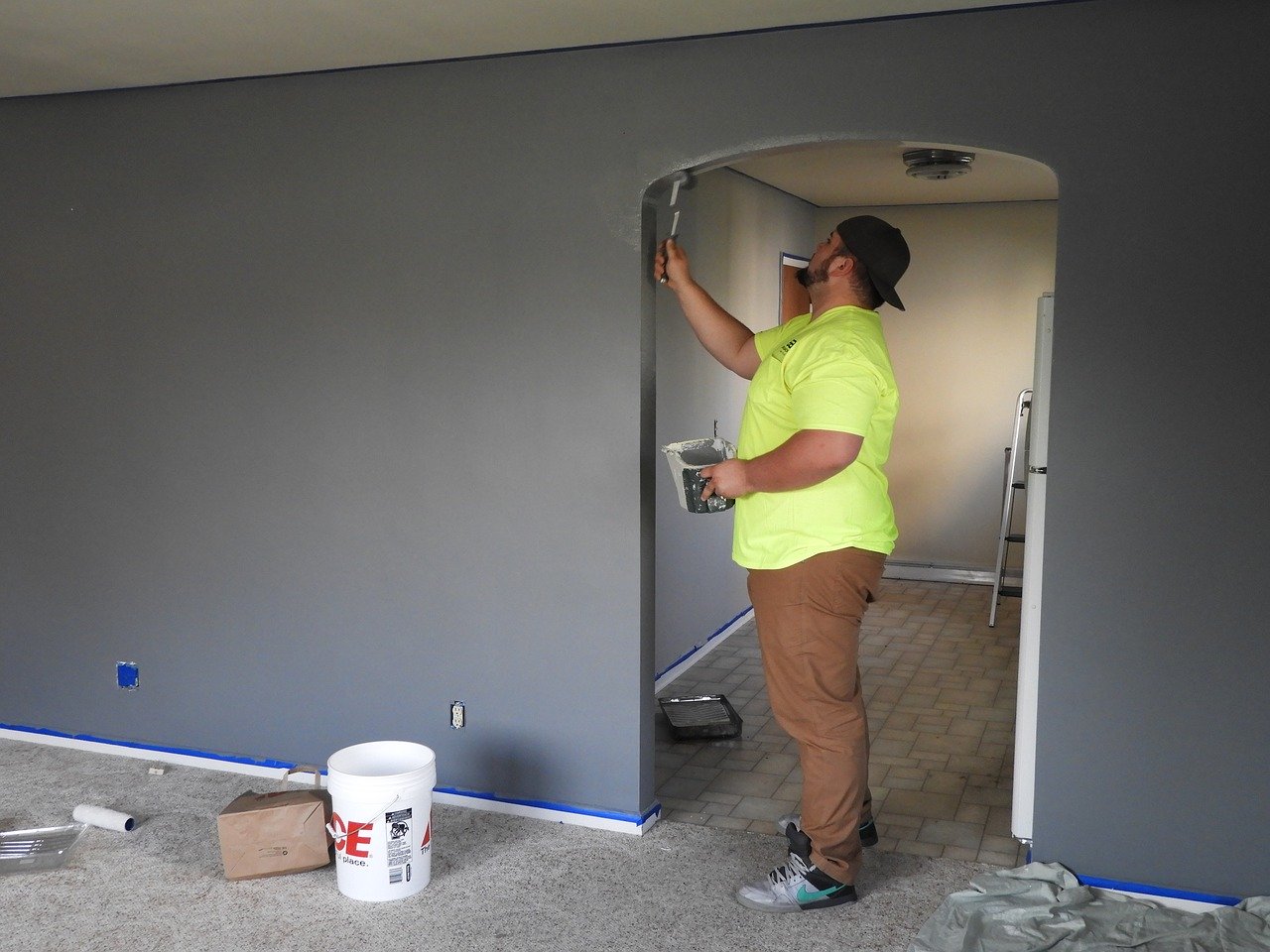By Christina Suter, FIBI Pasadena
I recently spoke with my industry colleague and good friend Bruce Norris about what it took for him to break through from who he was as a young man to the guru he is today. Bruce is an active investor, hard money lender, and real estate educator with over 30 years of experience. He is the founder of The Norris Group and has been involved in more than 2,000 real estate transactions as a buyer, seller, builder, and money partner. Bruce has dedicated himself to understanding the economic field in Southern California, and it shows in his work.

Photograph of Bruce Norris, courtesy of Christina Suter.
Bruce was married at 17, fired five times in a row, and eventually got the hang of getting a job. After reading How To Win Friends and Influence People, Bruce said he learned about avoiding the acute angle, which is finding a way to find an argument in everything. The book taught him to diffuse it and to enjoy the skill of learning to diffuse it.

Bruce then got a job in sales, where he sold electrical supplies for six years. One day he was invited to join a man to watch his attempt to buy a house wholesale. After the house was purchased, Bruce realized his life experiences could translate into the real estate buying business. In his electrical business, Bruce sold supplies to people who already had suppliers. In real estate, he convinced people to sell their house to him because he had cash and people could close in a few days.
One of the skills Bruce has mastered is the power to close a deal. When he negotiates with a seller, he lets them know that based on his experience, things work or they don’t, so his offer leaves with him. Bruce tells sellers if they call him back the next day, he will let them know that he’s no longer interested because he wants the power to close and know he’s telling them the truth.
Bruce has earned a reputation in the industry based on his integrity. He will often spend the first 15 minutes speaking with an owner just suggesting things for them that have nothing to do with him making a profit. Bruce will ask about their situation and make recommendations that don’t always lead to him, as a cash buyer, closing the deal.

Someone once referred a couple to go talk to him. He visited the couple for two hours. During that meeting, the husband made it clear to Bruce that he desperately wanted to move to another state, Tennessee, where he had a job waiting for him and his wife. The husband wanted such a full price without commission that he basically got in his own way, Bruce remembered.
There was an underlying desperateness to the man’s situation, so Bruce told him he could sell his house to him that night if he was willing to take less for his house. Bruce closed on their house.
Ten years later, that couple’s 21-year-old son visited his office and informed Bruce that he had been causing trouble in their house, due to his gang involvement. He told Bruce that had if he not bought their house, they wouldn’t have been able to move — and that kid would have ended up dead. He asked Bruce to teach him what he knew and how he was able to purchase his childhood home. That kid went on to open an office on Magnolia and Riverside and bought houses.

The first foreclosure Bruce ever door-knocked was an elderly woman who had $13,000 of debt on a $64,000 house. Because he didn’t want to make the woman homeless, Bruce was able to get the lender to arrange a loan for her — largely thanks to the equity she had in the house. Therefore, she was able to keep her house.
Bruce said he wants both sides of that when he’s a buyer. He wants to be able to look across the table and if he can help the seller make the decision he’d make if he were in their situation, he also wants to be kind enough to let them know when they’re making a mistake.
I asked Bruce how he switched from real estate as a job to having freedom and creating financial stability.
“It really wasn’t a priority to me, so I kept very little inventory for rentals for the first 15 year plus years; I just flipped,” he said.
Bruce added that Jack Fullerton was influential in saying, “That’s great, but what happens if you get hurt or sick? How are you going to have income coming in?”
Bruce said he took that question to heart. While on vacation in Maui, he listened to Robert Kiyosaki’s Rich Dad, Poor Dad. Thus, he learned Kiyosaki’s four ways to make income quadrant.

Bruce said he was always working for someone else or self-employed (the left side of the quadrant) — but on the right side of the quadrant, he was attracted to the two that involved running a business that didn’t need him and collecting checks from investments.
From that vacation on, Bruce changed the way he made income. He said he’s not self-employed because when he goes on vacation, his business can run without him. Thus, he runs a company. Bruce’s loan business, education business, and rentals all started to run without him, and he said he’s probably the least needed person at The Norris Group.
According to Bruce, it took him until late 2005 for his rental income to allow him to feel financially free. He had to think long term and at age 33, a $30,000 profit from a flip was more appealing to him than a cash flow of $200. Bruce said it took him a while to want to be methodical with the rental income and to actually fulfill that vision.
Bruce and The Norris Group can be reached at www.thenorrisgroup.com

Christina Suter
As the founder and lead consultant of Ground Level Consulting, Christina L. Suter brings two decades of real-world experience as a serial small business owner and real estate investor. She developed her extensive financial and operational skills firsthand as she faced and overcame each difficulty that appeared along the way. As a result, she started up, managed and sold several businesses successfully, while developing an extensive real estate portfolio.
In 2002, Christina made the decision to leverage her experience into helping other small business owners and property owners through a consulting practice that works the way an entrepreneur works, dealing with the pressing problems of a business on the ground level and in real time. Since then, she has supported numerous companies throughout southern California and the western United States move beyond surviving to thriving.
Christina’s solid background and education–including a Bachelors in Business, an Associates in Teaching and a Masters in Psychology–strongly influence her work with your company as a Ground Level client. Not only does she have a keen insight into what will make or break the success of your business, but she can teach you the skills you need going forward. And she does this in a warm, supportive, non-judgmental way that is always highly respectful of your personal values.
































 To lessen the risk of any big swing in the market, the answer is to diversify your investment portfolio so all your eggs aren’t in one basket. The problem many individuals faced in 2008 was that most of their 401k or other retirement accounts were tied up in stocks and mutual funds. When the market tanked, so did their accounts. Now imagine if half of those funds were diversified into buy and hold real estate. For many, the outcome could have been vastly different. Here’s why.
To lessen the risk of any big swing in the market, the answer is to diversify your investment portfolio so all your eggs aren’t in one basket. The problem many individuals faced in 2008 was that most of their 401k or other retirement accounts were tied up in stocks and mutual funds. When the market tanked, so did their accounts. Now imagine if half of those funds were diversified into buy and hold real estate. For many, the outcome could have been vastly different. Here’s why.
 Something else to consider is how you are using the power of inflation to your advantage. Most 401k plans aren’t able to keep up with inflation. With the small returns and high managements fees, unless you are able to invest a lot in those funds, you may not even be able to keep up with the rate of inflation. However, with rental property, you are working with inflation to win in two ways. First, your mortgage payment doesn’t change. Let’s say when you purchased the property it was a $500 per month payment. If the market tanks, it’s still a $500 payment on a fixed rate loan. If the market is great, same payment. When the market is doing well, your asset, if all goes as planned, is increasing in value. You’re actually earning value on the asset while effectively reducing the value of the money you’re paying due to inflation. Second, you will likely be able to increase the rental amount between 1%-5% per year. That’s additional cash flow and value you will be receiving yearly.
Something else to consider is how you are using the power of inflation to your advantage. Most 401k plans aren’t able to keep up with inflation. With the small returns and high managements fees, unless you are able to invest a lot in those funds, you may not even be able to keep up with the rate of inflation. However, with rental property, you are working with inflation to win in two ways. First, your mortgage payment doesn’t change. Let’s say when you purchased the property it was a $500 per month payment. If the market tanks, it’s still a $500 payment on a fixed rate loan. If the market is great, same payment. When the market is doing well, your asset, if all goes as planned, is increasing in value. You’re actually earning value on the asset while effectively reducing the value of the money you’re paying due to inflation. Second, you will likely be able to increase the rental amount between 1%-5% per year. That’s additional cash flow and value you will be receiving yearly.












